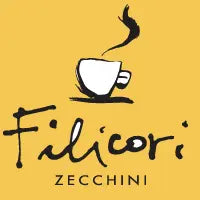The coffee supply chain is full of different roles and professions, each of which compete to offer the client the best quality final product.
Tasting, for example, is a very important phase in determining the quality of the coffee and the Cup Tasters competitions are dedicated specifically to this skill.
What do these consist of ?
The participant is presented with 8 groups of three cups of coffee; every triplet consists of two identical coffees and one which is different, and the competitor has to identify the one which is different.
The winner is the person who can correctly identify the greatest number of different coffees in the shortest time possible.
We discuss this topic in greater depth in our interview with Helena Oliviero, a young professional in the art of tasting who, in 2018, was awarded the title of Italian Champion of Cup Tasters and, in 2019, that of vice-champion.
Let’s find out how she got into this sector of work, what skills you need to be able to work in this context and what the possible job opportunities are.
When and why did you choose to specialize in a specific sector such as tasting?
It all started at high school, when I started working in catering, continuing my career in the United Kingdom.
After that I participated in some courses in Europe connected to the job of barista and the world of coffee: it was there that I discovered this “universe”.
I understood that the coffee market is an extremely varied system, in which highly specialized roles contribute to a top quality result.
I was particularly interested in the area connected to tasting, in that it allows you to discover the many subtle differences that exist between one drink and another, and to understand why a coffee is expressed in a certain way.
This is the reason why I decided to continue this path and become increasingly specialized.
How does someone become an expert in the art of tasting?
Is it essential to have some “innate” qualities, such as a particular sensitivity to smells and flavors?
As far as sensory analysis is concerned, the population can be divided into three groups, each of which refers to a particular sensitivity in terms of tasting: there are the non-tasters, the normal-tasters and the super-tasters.
The first group, which accounts for about 25% of the population, have a low level of sensitivity; the second, who represent around 50% of the population, have an intermediate level of sensitivity; the third group, which accounts for the remaining 25%, have a very high level of sensitivity.
Although it is possible to have a natural ability, having an innate gift is not everything: personally, I believe strongly in the ability to learn and refine your own skills with appropriate training.
Furthermore, I find it more important to “understand” the coffee, or rather be able to understand why a coffee possesses certain characteristics, rather than just sensitivity in itself.
When did you start competing?
The first competition I took part in, in the context of the WCE circuit (World Coffee Events), founded by the SCA (Specialty Coffee Association), was the the first Italian Championship in Cezve/Ibrik in 2016, the Turkish coffee, where I won first place. I wanted to test myself and I chose that championship precisely because I had traveled around the Balkans and been fascinated by this method of preparation which was very different from our culture, but at the same time, rich in symbolism and meaning.
Having reached third place in the Aeropress Italian Championship in 2017 and obtained the certifications Q Grader Arabica and Robusta, particularly linked to the context of tasting, I decided to try the Cup Tasters competition.
n 2018 you were Italian Champion of Cup Tasters and in 2019 you won the title of vice-champion; in 2016, as you said, you were Italian Champion of Cezve/Ibrik, Turkish coffee: how important are competitions for your professional growth?
Certainly, competitions give a strong “boost” to your professional growth, because they push you to improve and learn so that you can give your best.
In fact, the contest, “obliges” the participant to experiment, and refine their own abilities and find the best solutions in order to achieve particular results.
In everyday life, unfortunately, there is not always the time or the way to be able to dedicate yourself to these aspects, so I can certainly say that competitions help all the roles in the world of coffee to grow professionally and perfect their skills.
What professional opportunities open up for those who decided to specialize in an area such as tasting?
Winning a Cup Tasters competition, in my opinion, doesn’t necessarily provide you with immediate professional opportunities, but it can help to raise your profile in the work environment.
It’s the work that you do on improving your own personal skills, in my case in the field, which can open up interesting work opportunities such as, for example, the possibility to work in quality control and research and development for the companies who import green coffee, the coffee roasters and the producers of portioned and soluble coffee.
Do you need to train constantly in order to maintain certain tasting abilities?
Yes, you need to train constantly in order to get good results in a Cup Tasters competition.
If , however, we are talking about the ability to understand why a coffee is different from another or what a certain characteristic derives from, it is the experience and knowledge acquired that makes the difference, although a specific tasting sensitivity remains a very important gift.
You were one of the sensory judges on the jury of the competition “100 years of Filicori Zecchini quality ”, a competition which was created to celebrate 100 years of the Bologna Company which saw its own clients participate: what does it feel like to be a judge rather than a competitor?
It isn’t the first time I have been a judge, having already been one in other SCA competitions, and I have to say that this type of experience has allowed me to see things from another perspective.
In particular, I’m referring to the fact that, when you are a competitor, you may get angry or find yourself in situations which you consider unfair.
When you are there as a judge, however, you have the chance to see everything from a different point of view, and understand certain dynamics better and see that in certain cases there was no reason to be offended.
With the increasing level of training and competitions, the profession of barista is becoming less and less improvised.
Do you think that all the hype surrounding this topic has a positive effect on the quality of the service offered to the customers?
Certainly, greater research and application allow better quality services to be provided.
In relation to this however, it is important to distinguish between the quality of the coffee and the quality of the service.
In Italy, in general, we are quite good in the level of service that we offer the customer, also due to the young bar staff who have trained in catering institutes, who usually already demonstrate the correct approach when they start work.
In my view, though, there is still too little care taken with the quality of the coffee itself. However, overall, on both fronts, we are witnessing a gradual, albeit slow, improvement.
What activities are you currently involved in?
Currently I’m working independently, dealing with coffee training (Helena Oliviero is both and independent and SCA trainer for all ndr modules) and a coffee hunter (coffee researcher in producing countries). I collaborate especially with foreign countries, Latin America and Asia in particular: I help the producers to understand the quality of the coffee they produce on their plantations and I look for batches to import into Europe.
Being the connecting link between the consuming and producing countries, my job is to deal with the farmers directly and comunicate to them the kind of characteristics that importers are looking for in foreign coffees and help them to perfect their product so as to be more appealing in the market.
Can you tell us what it’s like to be a young woman in a work which is dominated by men at every level of the supply chain?
In my opinion it’s not easy being young and a woman in this sector, being a typically male dominated area of work.
As far as being young is concerned, in some countries – especially in Northern Europe – this is seen as a plus, whereas, unfortunately in Italy that there is not yet the same approach.
In Italy, being young is often associated with a lack of experience, while in other cultures it is associated more with the ability to work hard, be assertive and have a fresh and innovative view of things.
The concept of experience is also very different, which can be understood as having had the same role for a long time in the same situation, or as having changed position, place and work environment very often and learnt different things each time.
I think that in Italy there is much more focus on the first aspect, while I believe it would be more effective to have a better balance between the two aspects.
Furthermore, if we look abroad, there are some countries where it is culturally impossible for a woman to hold any professional role.
It is here that more work needs to be done for women to be appreciated and have their own space, and I think that this is possible if it is given continuous support focused on optimum results.
I believe that from here on, once we have broken the ice, the difference between men and women will start to decrease and give way to focus more on individual skills: for this reason, constant training is a fundamental aspect.
 Europe
Europe



